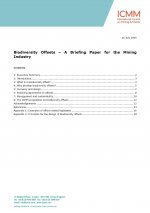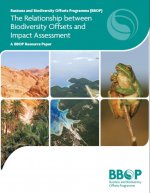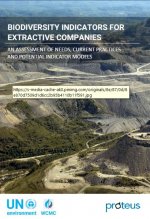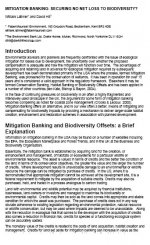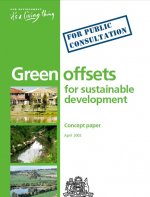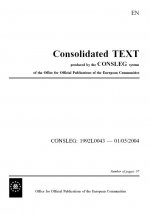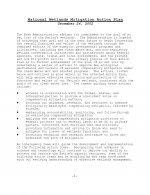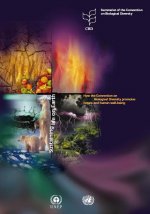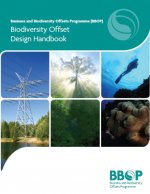Biodiversity Offsets A Briefing Paper for the Mining Industry
International Council on Mining and MetalsIndustry faces challenges as a result of its social, economic and environmental footprint. Since the mid 1990s, the mining industry has engaged in dialogue with environmental and social development organisations to determine how to address these challenges. Through this dialogue biodiversity has been identified as a key business and environmental issue. ICMM member companies are […]
The Relationship between Biodiversity Offsets and Impact Assessment
BBOPThis Resource Paper was prepared by the Business and Biodiversity Offsets Programme (BBOP) to help developers, conservation groups, communities, governments and financial institutions that wish to consider and develop best practice related to biodiversity offsets. It offers information on how to integrate biodiversity offsets with impact assessment, including Strategic Environmental Assessment (SEA) for policies, plans […]
Faustian bargains?
Restoration realities in the context of biodiversity offset policies
Martine Maron, et al - The University of QueenslandThe science and practice of ecological restoration are increasingly being called upon to compensate for the loss of biodiversity values caused by development projects. Biodiversity offsettingcompensating for losses of biodiversity at an impact site by generating ecologically equivalent gains elsewheretherefore places substantial faith in the ability of restoration to recover lost biodiversity. Furthermore, the increase […]
BIODIVERSITY INDICATORS FOR EXTRACTIVE COMPANIES
AN ASSESSMENT OF NEEDS, CURRENT PRACTICES AND POTENTIAL INDICATOR MODELS
The UN Environment World Conservation Monitoring Centre (UNEP-WCMC)Biodiversity indicators are an essential tool for understanding and managing changes in biodiversity. Efforts by the private sector to develop biodiversity indicators have often focussed on measuring biodiversity management actions rather than measuring on the ground changes in the status of, and pressures on, biodiversity. This is largely due to methodological and data challenges. This […]
Mitigation Banking: Securing No Net Loss to Biodiversity?
William Hill, David Hill - Latimer, LatimerEnvironmental advisors and planners are frequently confronted with the issue of ecological mitigation for losses due to development, the uncertainty over whether the proposed compensation is adequate and how the mitigation will function over time. The advantages of acquiring and retaining land in advance for ecological mitigation required by subsequent development has been demonstrated primarily […]
Green Offsets for Sustainable Development: Concept Paper
Government of AustraliaSustainable development takes a long-term view, and looks to the future effects of what we do today. It gives priority to building a healthy nation and world to pass on to future generations. However, population growth and changing lifestyles pose new challenges demanding fresh resolve and innovative approaches to lead us to a sustainable future.
Council Directive 92/43/EEC of 21 May 1992 on the Conservation of Natural Habitats of Wild Fauna and Flora
European UnionWhereas it is recognized that the adoption of measures intended to promote the conservation of priority natural habitats and priority species of Community interest is a common responsibility of all Member States; whereas this may, however, impose an excessive financial burden on certain Member States given, on the one hand, the uneven distribution of such […]
National Wetlands Mitigation Action Plan
Government of the United StatesThe Bush Administration affirms its commitment to the goal of no net loss of the Nation=s wetlands. The Administration is hopeful of achieving that goal and in the near future to begin increasing the overall functions and values of our wetlands through the combined efforts of the numerous governmental programs and initiatives, including the Clean […]
Sustaining Life on Earth: How the Convention on Biological Diversity Promotes Nature and Human Well-Being
Secretariat of the Convention on Biological DiversityIn a world of increasing globalization and environmental degradation, management of its most precious living resource, biological diversity, is one of the most important and critical challenges facing humankind today. Biological diversity is the resource upon which families, communities, nations and future generations depend. It is the link between organisms, binding each into an interdependent […]
Biodiversity Offset Design Handbook – 2009
BBOPThe Offset Design Handbook presents information on a range of issues, approaches, methodologies and possible tools from which offset planners can select the approaches best suited to their individual circumstances when designing a biodiversity offset. It describes a generic process that offset planners could use in designing a biodiversity offset, from initial conception of a […]


